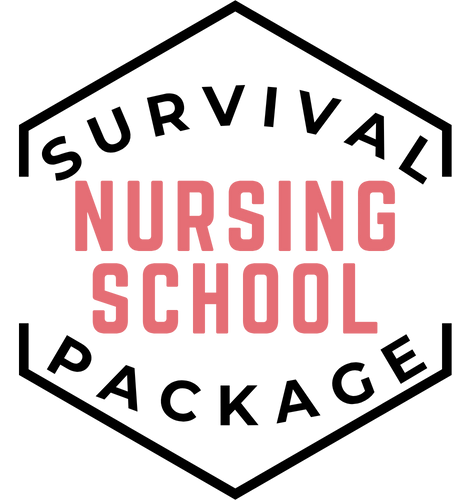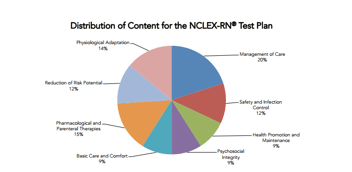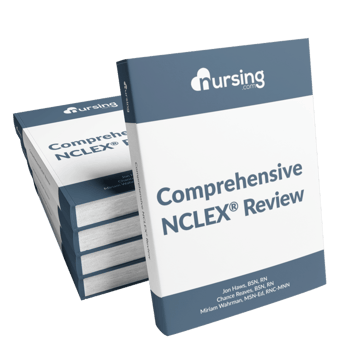Is Microbiology Hard? What You Need To Know | NURSING.com

Is Microbiology Hard?
Like you, other students looking to join nursing school have the same fear. Is Microbiology hard?
To answer this million-dollar question…
Bacterial meningitis killed 90% of children who were infected in the early 1900s. It was not until 1938 when Alexander Fleming developed antibiotics.
Was it difficult? Sure, it was. However, did that deter Fleming from achieving one of the most significant feats in medical history? You tell me.
Yellow fever resulted in numerous fatalities globally before Max Theiler developed a vaccine in 1937.
Was it hard? Heck yea. Max and his coworkers tried and failed 99 times before succeeding on the 100th trial.
My point is, every single successful and impactful feat in human history was hard. But…and the biggest BUT…achievable.
Is Microbiology Hard?
I won’t sugarcoat it…
Microbiology is hard.
Some theories, such as that you should possess this or that knowledge before studying microbiology, make the situation harder. Maybe some background in biology or chemistry won’t hurt, but you are going to college after all, where you’ll get all the learning you need from scratch.
Who knows, you’ll find it exciting once you get the hang of it.
So, what makes microbiology hard?
Mastering Microbe Names
The names of microbes are usually in Latin, long and most are tongue twisters. Grasping such names, like Acinetobacter baumannii, let alone reading them, can be a bit challenging.
Fortunately, most of these names are shortened to make it easier for you. Therefore, instead of Acinetobacter baumannii, you read A. baumannii.
A trick I learned back in nursing school was to master and pronounce Aggregatibacter actinomycetemcomitans, and the rest became a walk in the park.
Numerous Infections
Microbiology focuses on tons of microbes. You will notice cases where different microbes cause similar infections or a single microbe causing various infections.
For instance, the Human Papillomavirus (HPV) causes sexually transmitted infections, such as HPV. While a different strain of HPV causes cervical cancer, and another causes common warts.
Practical Disappointments
Your practicals will not always end up successful. Say you want to create a pure culture; you must observe certain ideal conditions, including pH, temperature, light, and oxygen and carbon dioxide concentration.
Without such ideal conditions, you might end up with a mixed culture or an unintended culture that might pollute your work.
Pharmacological Challenges
While not all microbes are harmful, you need to know which ones are and the infections they cause. This way, you will know the proper medicine to administer.
Remember, administering the wrong medicine results in dire consequences such as new long-term or short-term ailments, injuries, fatalities, or expensive lawsuits.
So…
Get it right.
Research and Practical Intensity
If you are not a fan of heavy research, you are in for some hard times.
Microbiology relies on heavy research to assist you in all the practicals vital to ace nursing school and out in the field. Unfortunately, you can’t visualize, well, anything. You have to look at everything under a microscope.
Sheer Volumes of Info
Now, combine all the above challenges, and you are left with some super intense memorization sessions the minute you begin the course.
From the endless lists of microbes, how to test and identify each, and the ideal methods, collectively known as morphology.
Now, all these challenges aren’t universal but unique to every student. For instance, back in nursing school, I was the Houdini of research and cultures. Mastering microbes’ names was a bit challenging, but I later got the hang of it…
So, will you, and this is how I know.
What Is Microbiology?
Microbiology is the scientific study of all living unicellular, microcellular and acellular microorganisms, such as bacteria, viruses, algae, fungi, archaea, prions, and protozoa.
You know, those tiny organisms, also known as microbes that you can’t see with your naked eyes but are capable of causing nasty infections such as the flu, covid-19, and other catastrophic infections you’ve read or heard of in the history channel.
You will learn how to identify, test, and cultivate these microbes in a lab. Don’t worry; you will be working in a controlled environment while in the lab. As long as you follow the right protocols, y’all will be fine.
Is Microbiology Hard…It No Longer Matters
Microbiology is hard…
With everything it focuses on and constitutes, you can easily lose your head, especially if you lack help.
Luckily, there are a lot of resources to help you get by and ease your struggles in nursing school. So, I will let you in on some credible resources I used back in the day.
This is my personal favorite and for many other students.
This LMS is one of a kind and provides tons of invaluable resources to help you through your daily struggle in nursing school.
The icing on the cake, they have the best and extensive microbiology course that contains helpful literature on micro bio. I guarantee you; this is one resource you should get conversant with.
I would recommend this LMS any day of the week and thrice on Sunday to nursing students and registered nurses.
Digital Learning Center for Microbial Ecology (DLC-ME)
All microbes serve a purpose, from nutrient cycling, biotech, medicine, cause and control of infections, food and nutrition, and biodegradation. The various subdivisions of micro bio explain the purposes of each of these microbes.
DLC-ME has useful resources focusing on microbial ecology – the study of microbes in various environments and how they interact with one another. These particular microbes are helpful or, at times, vital for our survival.
American Society for Microbiology (ASM) Journals
Microbiology journals come in handy during research, knowledge expansion, or reading when you get bored. AMS journals are rich and detailed with micro bio information.
In fact, as per a 2018 Web of Science report, AMS journals contain 26% of all micro bio articles and contribute 44% of all micro bio citations. These journals contain invaluable results of fundamental and applied microbiology research.
Microbiology Society
This society is a collection of microbiologists with deep knowledge and expertise from around the globe. This society works in different capacities, such as a leader in the discipline, a partner in collaboration with other scientific organizations, and assembling these experts.
Joining this society will give you a unique chance to unlock and harness your potential in microbiology.
It may sound a bit early to join a society, but…
I’m an early bird kind of nurse.
Cells Alive!
Who said you couldn’t study using some fun resources?
Well, that’s what Cell Alive does. It contains visually stimulating film and computer-generated images of microorganisms for easy referral and identification.
The owner, Jim Sullivan, ensures this resource is always up to date.
Microbiology Writing Guide: Lab Report Format
Microbiology is full of research and practicals. You must develop a culture of writing lab reports as a part of your nursing experience.
These lab reports are vital in highlighting your original work in a digestible manner and suggest further studies regarding a particular issue.
Lab reports differ from one institution to another. This writing guide will teach you the basic format of writing a detailed lab report, either in nursing school or in the field.
Your Professors and the Library
These are the closest most important resources at your disposal from day one. If you are lucky as I was, you will get a fantastic and experienced professor who will guide you every step of the way.
Additionally, your school’s library is fully stocked with journals, articles, and textbooks, particularly Clinical Microbiology Made Ridiculously Simple that uses diagrams, mnemonics, and metaphors to boost your learning experience. Another fun book is Lippincott Micro Cards: Microbiology Flash Cards that uses flashcards for a fun learning experience.
There are plenty of other resources out there for you to discover. What worked for me might not work for you. While you look for others, check out all the above, you’ll be surprised at the amount of valuable info they have.
Ridiculous Tips to Study Microbiology in Nursing School
Microbiology is a broad discipline consisting of multiple subdivisions that await you to learn and master.
In other words…
Microbiology is hard.
Hold your horses before you think of a career change.
Sure, you have to bust a nut to make it through. Lucky for you, I have some ridiculous tips up my sleeve to help you study and ace pro-style.
NURSING.com
This website contains tons of studying material, from detailed notes to cheat sheets, and mnemonics, among others. The website is all about helping you ace your microbiology course.
You can rest assured whatever info that is here is legit.
Switch Your Attitude
Live by the words of David Bailey that a positive attitude can really make dreams come true – it did for me…
Yes, it did. Accept you are in nursing school about to study microbiology and will ace the course via sheer hard work. Keep in mind you are the winner. If you fail, you become a sore loser, and that’s on you.
A Study Plan Goes a Long Way
Once you’ve joined nursing school and settled, get a hold of the microbiology course outline. Create a well-detailed study plan that will help you manage your time and plan activities. Be sure to prioritize the stuff that matters the most, such as studying and more studying.
Utilize Visual Aids
Research shows using visuals while studying will boost your learning and information intake by…drumroll, please…
They also improve cognitive and creative thinking to ensure you process information faster. Some visuals you can use include:
- Diagrams
- Charts
- Mnemonics
- Flashcards
- Posters
- Infographics
- Videos
- Flashcards to help you study on the go
For instance, you can use the ‘CLAP’ mnemonic to identify Gram-Positive anaerobes.
C – Clostridium
L – Lactobacillus
A – Actinomyces
P – Propionibacterium
There is more where that came from…
There’s Strength in Numbers
Agreeably, every fiber in your being is a warning to maintain social distance, especially as a potential microbiologist. However, there is unity and power in numbers.
Instead of studying alone, join a study group for motivation and support. Study groups are especially important when studying for nursing exams…
I can attest to that.
Apply a Learning Pattern
Microbiology is broad.
While you are excited about joining nursing school, you need to take a deep breath and start planning. Don’t read everything from cover to cover cos you will suffer from burnout before the fun stuff begins.
Instead, utilize a study pattern. For instance, these can help you study bacteria:
Specific bacteria strain followed by its gram status followed its shape, and finally its pathogenicity.
This will help you better understand the bacteria’s virulence and the infections caused.
Cater For Your Wellbeing
Amid the rigorous studying, you might fail to take care of your wellbeing resulting in negative impacts such as poor performance and fatigue.
So, ensure you eat well, have plenty of fluids, rest enough, socialize, work out and have some fun now and then.
Utilize All the Resources Above
These resources will help you learn and master microbiology faster than anybody else. Each of them is unique, but the information is invaluable and will help you through nursing school and ace your microbiology exams.
You Can’t Afford To Skip Class
You might be tempted to abuse the freedom you’ll have in nursing school and skip a class.
Not only will you be at loggerheads with your professors, but you risk failing if you miss too many classes.
Additionally, missing a class means you have missed an important lesson that you might not recover.
Practice, and More Practice
This course requires a lot of hard work. Repeated revision and study are key with all the facts and more facts you are supposed to learn and grasp. Remember, you don’t have time to look up an issue in an exam room or the field.
In your free time, practice the necessary practicals till you master them all.
The Fresher the Info, the Better
Don’t wait for later to write down notes.
The fresher the facts you’ve learned are, the better you can recall and the faster you can write them down.
Become More Involved
There are certain ways you can gain more hands-on microbiology experience, such as:
- Join a microbiology club or association
- Volunteer in hospitals
- Volunteer in microbe research labs
There you go; the ball is in your court now.
Is Microbiology Worth Studying?
The short answer is yes.
Microbiology is applied in many environments making it one of the most sought-after disciplines.
In case you are wondering, it will help you:
- Learn about health and safety
- Take care of various patients
- Properly dispose of medical waste
- Test and identify infections and the ideal drugs to handle them
- Conduct research and develop sustainable ways of handling pandemics
- To earn some decent Benjamins ($84,400 annually)
- Crossbreed careers, such as eco-activists, patent lawyers, infectious disease physicians, and public policy and regulatory affairs professionals
…and the list goes on.
Now I am confident you have your answer to; is microbiology hard?
NURSING.Com Is an Incredible Resource
Nursing is among the best and most impactful careers you can get into. It’s no wonder nursing is America’s largest healthcare profession with more than 3.8 registered nurses countrywide, according to the American Association of Colleges of Nursing (AACN).
Furthermore, the latest AACN press release indicates the number of nurses who joined baccalaureate, master’s, and doctoral nursing programs increased by 5.6% despite the global pandemic.
Sure, many aspiring nurses join the various nursing schools countrywide. Good, our patients and their families are computing on us, plus we need all the help we can get.
The hard truth is, like microbiology, nursing can be equally frustrating and challenging for any nursing student. During my time in nursing school, I experienced my share of struggles, similar to most of you.
Nevertheless, I am a success story. I put in the hard work, made the hours, aced all my exams, and now I am among the heroes who get to impact numerous people’s lives daily positively.
You can join me too…
But, the million-dollar question is…
Are you willing to do what it takes to make it through nursing school? Are you willing to sacrifice to one become a person patients look up to?
A very important thing they don’t tell you is that nursing school can break you. The daily pressures and demands can prove too much for you, making you rethink your career choice. Worse, like the military, you can hit that bell and call it quits.
However, if you quit, who will take care of your patients?
Sure, there are exciting moments, such as the nursing clinicals and making friends for life.
Like you, I faced my fears and leaped forward. However, I didn’t succeed on my own. I found the right resources to help me break the struggles, burnout, long hours, constantly deprived finances, monotony, and boredom.
The numerous challenges from attempting to master the professors’ numerous PowerPoint presentations, the uncountable tasteless textbooks, online resources such as YouTube, and social ‘influencers’ to pass our NCLEX® exams…all exercises in futility.
I made it to become the nurse I’ve always dreamt of becoming. And with the same resources, better days are coming.
Enter NURSING.com: the most helpful and credible resource for every struggling nursing student out there.
A unique revolutionary ultra-modern LMS with bucket loads of goodies to help you ease your daily nursing school struggles.
Talk about Christmas coming early this year!
Hold the phone…
Why should you consider NURSING.com?
- Clear and concise videos on all topics you will ever learn in nursing school
- Over 6,000 practice questions
- Multiple lecturers
- Numerous granular, detailed nursing courses
- Private groups
- Printable course outlines and study plans
- Multimodal content including cheat sheets, mnemonics,
- and so much more
- Access to the whole curriculum
- Credible study tools, such as visual tools to help you master even the complex content
- Our adaptive computer simulation SIMCLEX® to help you
- pass your NCLEX®
To top it all…
- The super crazy 200% NCLEX® pass money-back guarantee if you pass SIMCLEX® but fail NCLEX®.
The good news is, I’m not the only one. You can check out the other nursing students who have benefited from Nursing.com. Those who have saved an average of 4 hours weekly got their lives back by improving their grades and passing the NCLEX®.
So, what are you waiting for?
Sign up to start your free trial with Nursing.com and reap these and much more benefits.







